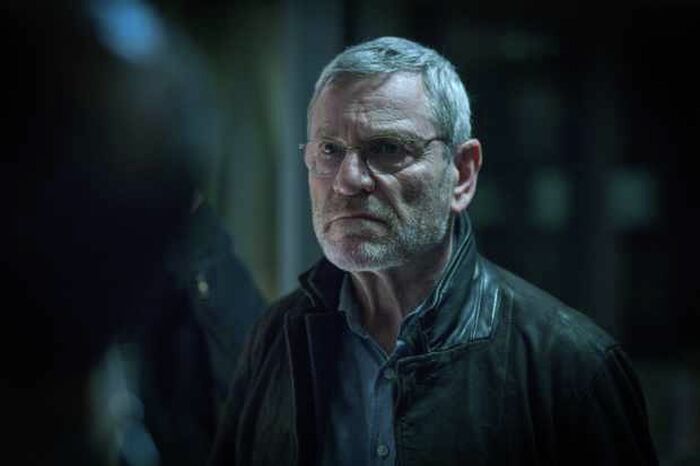Fleabag: in love with a ‘love story’
As Phoebe Waller-Bridge’s hit BBC comedy comes to a close, Nadia Tadros uncovers its surprising poignancy and emotional nuance
In the opening of Fleabag’s much-anticipated second and final series, Phoebe Waller-Bridge’s dry-witted protagonist, blood streaming from her nose, turns to face the camera and tells us ‘this is a love story’.
This simple remark succinctly prepares us for what is to come in this series, as Fleabag begins to transition from her destructive habits towards mending her broken relationships with those around her, and gradually opens herself to the possibility of love. Series one left us with a hopeful ending to an otherwise excess of chaos and calamities, as Hugh Dennis’ bank manager offers Fleabag an interview for a loan to save her ‘guinea pig-themed’ café, verging on bankruptcy. Now refreshed and revitalised, running a successful business, and having undertaken a year of self-discipline and abstinence, Fleabag is back in full swing with her quips to the audience and, as we soon discover, still possesses the invariable capacity to cause mischief and mayhem wherever she goes.
Andrew Scott’s priest seems to be the making of Fleabag’s ideal partner or otherwise the final piece to guide her through her quest for catharsis and redemption
Given that this setup allows audiences to enter series two aware of Fleabag’s newfound self-restraint, it is unsurprising that the talking point of the series has concerned the chemistry between Waller-Bridge’s character and the ‘hot priest’ who arrives like forbidden fruit; a true test of temptation from God. Unnamed, charming, humorous, spiritual, bordering on alcoholism and clearly sharing in many of her existential fragilities, Andrew Scott’s priest seems to be the making of Fleabag’s ideal partner or otherwise the final piece to guide her through her quest for catharsis and redemption.
The sexual and romantic tension between Fleabag and her priest which plays out in the second series reflects something of the internal struggle which has plagued her character since series one; she is constantly torn between submission to impulses which provide her the agency to behave recklessly and as she pleases, and a genuine desire, motivated by compassion, to do better by those she loves. In a climactic moment, inside the church confession box, Fleabag admits that she yearns to be told what to do, whilst at her father’s wedding the priest confidently tells her that she doesn’t. Ironically, both observations are true, which is precisely why she needs to frequently break the fourth wall and release her thoughts and acute observations to audiences who delight to share in them.
Breaking the fourth wall has been an integral device for Fleabag – unsurprising considering that the show was originally intended for theatre – enabling a bond between character and audience that made us immediately fall for her in series one. In this second series, which focuses further on the theologically-loaded ideas of sin, forgiveness, salvation, and redemption, Waller-Bridge provides us with a beautiful moment where the fourth wall is meta-broken as the priest asks her, ‘Where did you just go?’.
It is this emotional honesty and warmth behind the more outrageous comedy that potently shines through
Playing with narrative and metaphysical boundaries is just one dimension of the genius of Waller-Bridge’s writing, as her characters continue to provide comedy through their awkward, catty, passive-aggressive and all-round quintessentially British interactions. Yet this has not stopped the show from facing attacks from certain critics, who have argued that whilst the writing is poignant and relatable, it remains reserved for ‘posh girls’ belonging to the upper middle class. Much of this criticism is made in light of Waller-Bridge’s own background, since she was privately educated and has baronets on both sides of her family. However, such observations not only fail to properly distinguish writer from subject matter, but also grossly misrepresent much of the comedic value of the programme, which subtly satirises expectations – particularly expectations of femininity – associated with the upper middle class.
Despite having ‘two degrees and a Burberry coat’ as well as a successful career and husband, sister Claire (Sian Clifford) is deeply dissatisfied with her marriage and in season two remarks that ‘it takes a lot of effort to be this happy’. Furthermore, Fleabag’s distant father and bitch of a godmother continue to ignore, repress, and inauthentically feign happiness when faced with life’s troubles. Whilst embracing the real affection she feels towards her family, Fleabag, on the other hand, rejects any kind of role which others wish to assign to her, and whilst her choice to transgress may be authorised by her privilege, it makes for undeniably compelling and entertaining content.
It is this emotional honesty and warmth behind the more outrageous comedy that potently shines through in the second series. This is a love story, if by love story we mean one which deals with love in its many forms: ever paradoxical, hopeful, and complex. In the words of the priest, love is ‘all we ever want and it’s hell when we get there’, but at least it makes for a series that is bittersweet heaven.
 News / SU reluctantly registers controversial women’s soc18 December 2025
News / SU reluctantly registers controversial women’s soc18 December 2025 News / CUP announces funding scheme for under-represented academics19 December 2025
News / CUP announces funding scheme for under-represented academics19 December 2025 Features / Should I stay or should I go? Cambridge students and alumni reflect on how their memories stay with them15 December 2025
Features / Should I stay or should I go? Cambridge students and alumni reflect on how their memories stay with them15 December 2025 Fashion / The art of the formal outfit 18 December 2025
Fashion / The art of the formal outfit 18 December 2025 Lifestyle / Summer lovin’ had me so… lonely?18 December 2025
Lifestyle / Summer lovin’ had me so… lonely?18 December 2025









